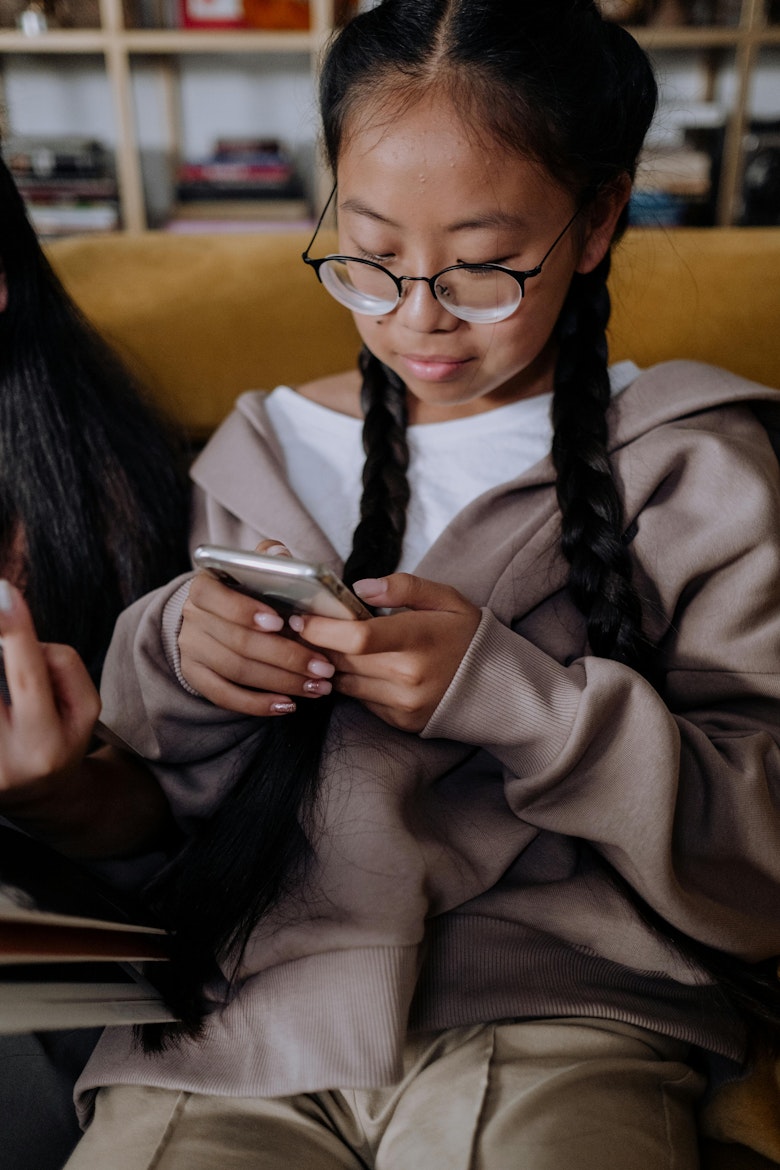What teen girls don't know about periods
Insights into the educational gaps

Updated December 2, 2025 • Medically reviewed by Dr. Emma Dickie
Medically reviewed by Dr. Emma DickieIn this article
Quick summary
- Nearly three in four teens say their school’s period education is lacking
- With only 14% learning most about periods from teachers, many teens turn to platforms like TikTok or AI for answers – where misinformation can easily spread
- Apps like luna offer doctor-reviewed educational content that helps teens understand their bodies confidently, closing the education gap and breaking the silence around periods

Despite progress in menstrual health conversations, period education in schools remains patchy and inconsistent.
And teens are noticing.
According to a recent survey by luna, nearly three in four (72%) say their school’s education on periods is lacking, with one in eight saying they’ve never had any period education at all!
So where are teens turning for answers? Increasingly, it isn’t the classroom.
Where teens are really learning about periods
When asked in the luna app where they learned the most about periods, only 14% of teens said school teachers.
Instead, one in four go straight to social media – with TikTok topping the list.
In a recent 2025 survey, we also learnt that over 2 in 5 teen girls (41%) say they’ve used AI to ask for health advice! And the rise of AI offering teens advice has been plain to see in the follow up questions we receive on luna, fact-checking the (often misleading) information they've received.
The experts at luna get asked a lot of questions about periods.
But the most common ones asked aren’t about complex conditions, but about the basics:
- Is it normal for my period to be irregular?
- How long should you have a tampon in for?
- How many times a day do you change a pad?
- Why is my period brown?
- I'm 11, why have all my friends started their period and I haven't?
The number of questions like these shows just how many gaps remain in early education.
Stigma still shapes how teens feel about periods
It isn’t just a lack of information that makes periods difficult for young people.
Stigma plays a big role, too.
Nearly half of teens (47%) say they’re only comfortable talking about periods with close friends or family, while one in three say they feel embarrassed or prefer to keep it private.
That silence has real effects.
When young people feel embarrassed to talk about their periods, it can hold them back from everyday activities – whether that’s avoiding sports, feeling anxious about leaks at school, or cancelling plans altogether.
Stigma doesn’t just shape how teens think about their periods; it shapes how they experience them on a practical level.
The real-world impact of education gaps
Periods are not just a “personal” issue – making them something to be ashamed of or not understood thoroughly can affect learning, wellbeing, and human connection.
When institutions don’t provide adequate support, whether that’s access to free products, private toilet spaces, or flexibility around sport, young people can be left feeling frustrated, embarrassed, or even forced to miss out on learning altogether.
When a normal biological function causes stress or lost opportunities in the classroom, the cost is clear: it undermines equality and confidence at school.
How we can close the gap
Closing these hidden gaps means tackling the problem from multiple angles:
- Better school-based education: teaching accurate, inclusive information early on matters especially since some people start their periods as early as 8
- Practical support in schools: free period products, private bathroom spaces, and staff of all genders who are trained to support students can remove unnecessary stress
- Trusted digital resources which can be a PSHE companion: while social media is quick and accessible, it isn’t reliable; that’s where safe, evidence-based platforms like luna come in – giving young people a place to ask questions and learn about their bodies, and help them feel less alone

Empowering the next generation
Periods are a normal part of life, yet for too many teens, they’re still surrounded by uncertainty, silence, or even shame.
By listening to what young people are telling us, and by closing the education gap with supportive environments and safe digital resources, we can empower teens with both knowledge and confidence.
Because no one should have to Google “how can I get out of swimming at school tomorrow without telling my coach I'm on my period?” at midnight, or feel too scared to ask their parent how often to change a pad.
With better education and open conversation, we can make sure the next generation grows up knowing not just the facts about periods, but also that there’s nothing to be embarrassed about.

How we created this article:
luna's team of experts comprises GPs, Dermatologists, Safeguarding Leads and Junior Doctors as well as Medical Students with specialised interests in paediatric care, mental health and gynaecology. All articles are created by experts, and reviewed by a member of luna's senior review team.
Sources:
NHS "Starting your periods" | Accessed 05.09.25
https://www.nhs.uk/conditions/periods/starting-periods/We'd love to keep in touch!
Sign up to our parent newsletter for emails on the latest teen trends, insights into our luna community and to keep up to date
By signing up, you are agreeing that we can use your email address to market to you. You can unsubscribe from marketing emails at any time by using the link in our emails. For more information, please review our privacy statement.